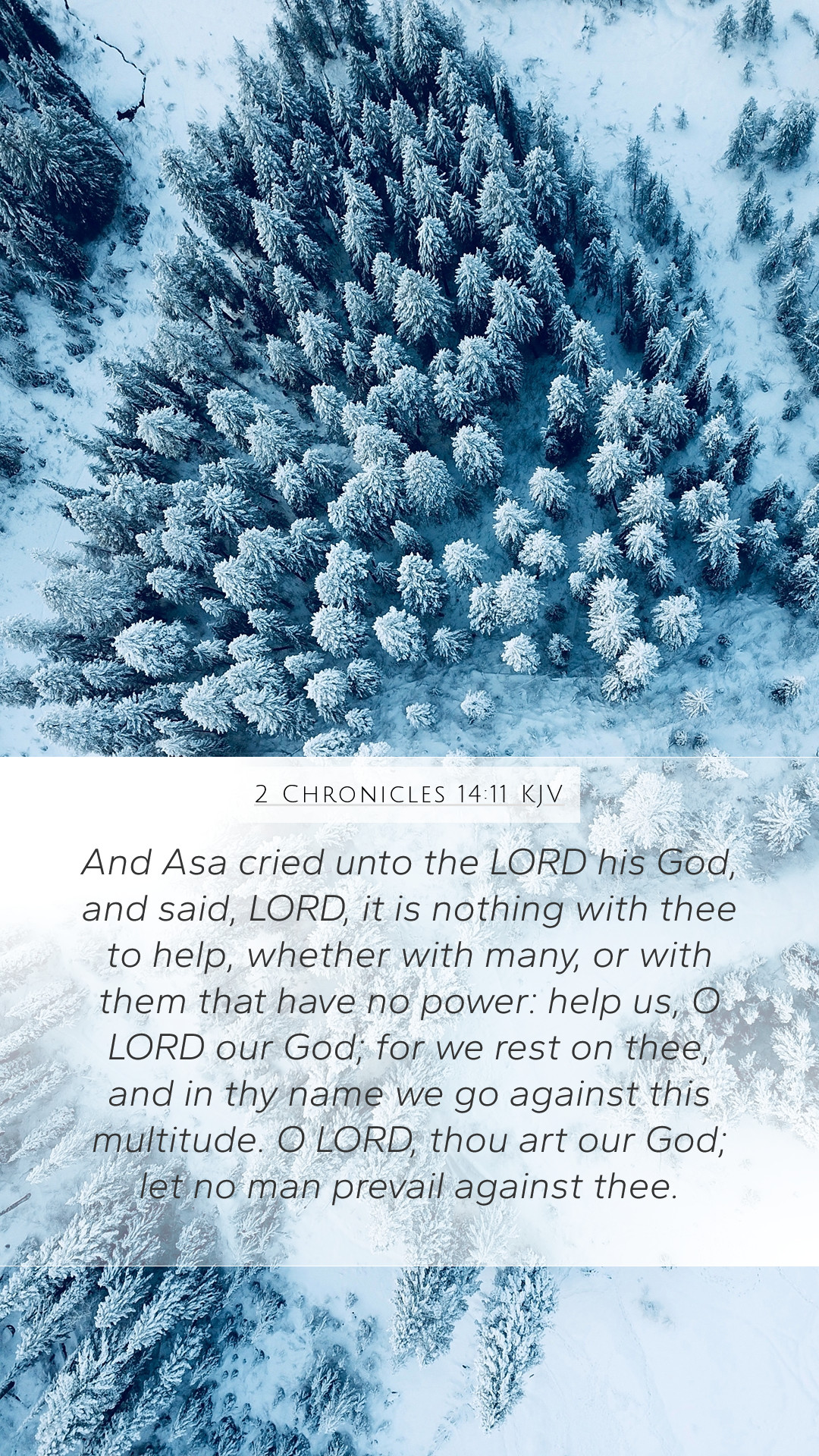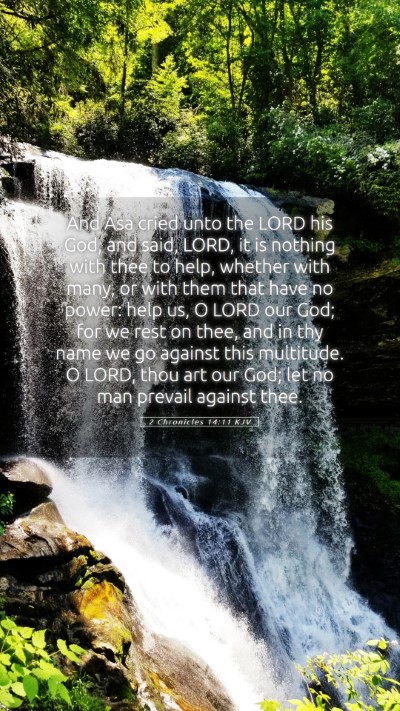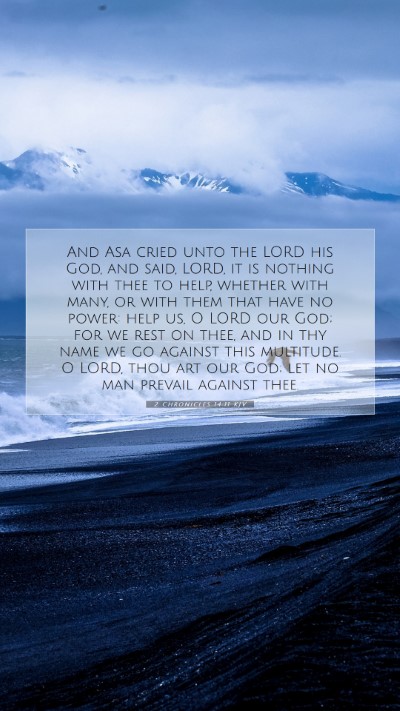Bible Verse Commentary: Understanding 2 Chronicles 14:11
Verse Text: "And Asa cried unto the Lord his God, and said, Lord, it is nothing with thee to help, whether with many, or with them that have no power: help us, O Lord our God; for we rest on thee, and in thy name we go against this multitude. O Lord, thou art our God; let not man prevail against thee."
Overview: In this verse, King Asa is depicted calling out to God during a time of impending conflict, demonstrating his reliance on divine intervention rather than military might. This passage emphasizes faith and trust in God's power amid overwhelming circumstances.
Insights from Commentaries
-
Matthew Henry:
Henry emphasizes Asa's earnestness in prayer and the acknowledgment of God's sovereignty. He notes that Asa recognized that divine help is not limited by human resources, illustrating a deep faith that centers on God's ability to save regardless of the situation's apparent hopelessness.
-
Albert Barnes:
Barnes highlights God's omnipotence and the futility of relying solely on human abilities. He points out that the plea for divine assistance illustrates the importance of seeking God's help in all matters, regardless of how formidable the challenges may seem.
-
Adam Clarke:
Clarke discusses the significance of Asa's declaration of faith, noting that trusting in God means recognizing His power to aid even when natural circumstances seem alarming. Clarke also mentions that Asa’s prayer serves as a model for believers, teaching them the importance of turning to God in times of trouble.
Key Themes and Meanings
Faith in God: Asa's prayer is a profound expression of his faith. He recognizes that God can help whether or not one has large numbers of soldiers or resources.
Dependence on Divine Intervention: Asa’s plea represents a model for believers today; it is a reminder that one should not rely solely on worldly strength but seek support from God.
The Power of Prayer: The verse highlights the essential role of prayer in seeking God’s intervention. Asa’s cry emphasizes putting trust in the Lord for battles that may seem insurmountable.
Applications of the Verse
This verse encourages individuals and Bible study groups to reflect on their own reliance on God in difficult times. It invites believers to:
- Trust in God's power more than their own abilities.
- Pray earnestly, presenting their needs before God.
- Recognize that God is capable of delivering from any situation.
Cross References
- Psalm 20:7-8: "Some trust in chariots, and some in horses: but we will remember the name of the Lord our God. They are brought down and fallen: but we are risen, and stand upright."
- Isaiah 41:10: "Fear thou not; for I am with thee: be not dismayed; for I am thy God: I will strengthen thee; yea, I will help thee; yea, I will uphold thee with the right hand of my righteousness."
- 2 Kings 19:19: "Now therefore, O Lord our God, I beseech thee, save thou us out of his hand, that all the kingdoms of the earth may know that thou art the Lord God, even thou only."
Conclusion
2 Chronicles 14:11 encapsulates a powerful message of faith, illustrating the importance of seeking God's help in times of adversity. This verse serves as an encouragement for believers to engage in deep prayer, reaffirming their reliance on God's strength to overcome life’s challenges.


